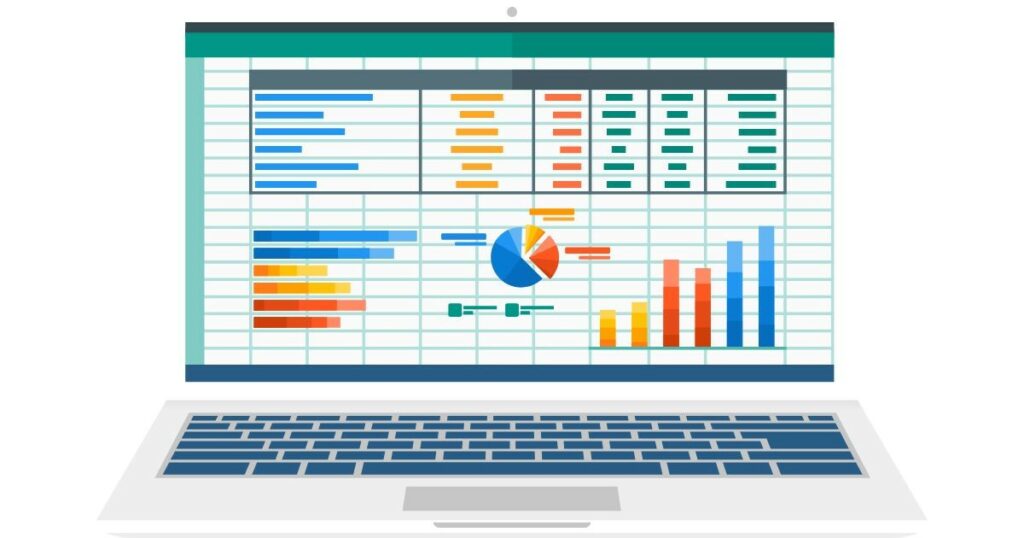Running a startup? You need to keep your finances in check. Good accounting software can make a big difference. It helps you manage money tasks quickly and correctly. Plus, it keeps you on the right side of the law. When you have clear financial information, you can make better choices for your startup business.
The right software does more than just crunch numbers. It saves you time and cuts down on mistakes. You’ll get up-to-date money info at your fingertips. With less time spent on paperwork, you can put your energy into serving customers and improving your products.
Importance Of Accounting Software For Startups
Let’s face it – keeping track of money can be a headache when you’re running a startup. That’s where accounting software steps in to make your life easier. Think of it as your financial helper that works around the clock.
It’s not just about tracking expenses and income. Good accounting software helps you spot trends in your business. Maybe you’ll notice which products sell best, or when your busy seasons are. This kind of information helps you plan better and grow your business smarter.
Best of all, you won’t have to spend your evenings sorting through receipts and invoices. The software does that heavy lifting for you, giving you more time to focus on what really matters.
Key Considerations When Selecting Accounting Software
Before you jump in and buy accounting software, take a moment to think about what your business actually needs. Not all software is the same, and what works for your friend’s business might not work for yours.
First, look at your budget. But remember, sometimes paying a bit more can save you money in the long run if the software does more of what you need.
Think about how easy it is to use. You don’t want to spend weeks learning complicated software. Look for something that makes sense to you right away. And make sure it can grow with your business.
Don’t forget about customer support. Also, check if the software can connect with your bank and other business tools you already use. This can save you loads of time on data entry.
Top Features To Look For In Accounting Software
When choosing accounting software, keep an eye out for features that matter. A good system should handle your basic bookkeeping without giving you a headache.
- Look for software that tracks your income and expenses automatically. It should also create and send professional invoices to your customers.
- The best part? It should remind you when customers haven’t paid, so you don’t have to chase them down yourself.
- Make sure it can handle payroll if you have employees. You’ll want something that calculates taxes and deductions correctly.
- Also, pick software that creates clear financial reports, you’ll need these for tax time and business planning.
- Cloud-based access is a must these days. You should be able to check your numbers from anywhere, whether you’re at home or on the road.
- And don’t forget about security – your financial data needs to be safe and backed up regularly.
Remember, good accounting software should make your life easier, not harder. If it feels too complicated, keep looking until you find one that clicks with you.
Popular Accounting Software For Startups
Let’s look at some top accounting software options that work well for startups. Each has its own strengths, so you’ll want to match them with your needs. Take a look at their free trials to find your perfect fit.
1. NetSuite
NetSuite is a powerhouse for growing businesses that need more than basic accounting. It handles everything from accounting to inventory and customer relationships. The software grows with your business and works well if you plan to expand. While it costs more than basic options, it offers the most complete business management system in one package.
2. QuickBooks
QuickBooks leads the pack for startup accounting software. It’s easy to use and comes with features that most startups need. The software connects to your bank, tracks expenses, and creates professional invoices. You can start with the basic version and upgrade as your business grows. Their mobile app lets you handle accounting tasks on the go.
3. Xero
Xero makes accounting accessible and user-friendly. It shines with its unlimited user access and strong inventory tracking features. The software works great for businesses that need multiple people to access financial data. Xero also plays well with hundreds of business apps and offers solid reporting tools. Their pricing plans are straightforward and competitive.
4. FreshBooks
FreshBooks focuses on service-based businesses and freelancers. It excels at time tracking and project management alongside core accounting features. The interface is clean and intuitive, making it perfect for business owners who don’t have an accounting background. Their customer support is top-notch, and the mobile app is one of the best in the industry.
5. Sage
Sage offers reliable accounting software that caters to different business sizes. Their small business version, Sage 50cloud, combines desktop software’s power with cloud access. It’s particularly strong in manufacturing and construction industries. The software includes detailed inventory management and job costing features. While it has a steeper learning curve, it provides robust accounting tools for growing businesses.
Transitioning To New Accounting Software
Changing your accounting software doesn’t have to be scary. Many businesses switch to better fit their growing needs. The key is planning your move carefully.
- Start by backing up all your financial data. Pick a slow business period for the switch. Consider using professional accounting data migration services to move your information safely. These experts can transfer your data without losing important financial history.
- Match your old software categories with the new ones before moving data. This prevents confusion later. Test the new system with a small batch of data first. Keep your old software running until you’re sure everything works in the new one.
- Many top accounting software providers offer data migration services as part of their setup package. Take advantage of this if it’s available. It can save you time and prevent costly mistakes.
- Remember to train your team on the new software. Give them time to learn before making the complete switch. Most providers offer training videos and support to help you get started.
The right timing and preparation make switching software much easier. Your business can keep running smoothly while you upgrade to a better accounting solution.
Maximizing The Benefits Of Accounting Software
Make your accounting software work harder for you. Set up automatic bank feeds and recurring invoices from day one. To get the best results, work with professional accounting experts for proper setup and optimization. They’ll help you build a solid financial foundation.
Look at your reports weekly, not just at tax time. Clean up your accounts monthly to keep data accurate. Connect your software with other business tools. Professional accounting service providers can help you understand complex features. Stay current with software updates and new features as they arrive.
Final Thoughts
Choosing the right accounting software for your startup is important for success. Take time to evaluate your needs and compare different options. Your choice should match your business size, industry, and growth plans. Remember that the best software grows with your business.
Start with the basics and expand your usage over time. Whether you pick QuickBooks, Xero, or another option, the right software will save you time and help your business thrive. The investment in good accounting software pays off through better financial control and smarter business decisions.


Pingback: FinancialForce and Sage Intacct – What's the Difference?